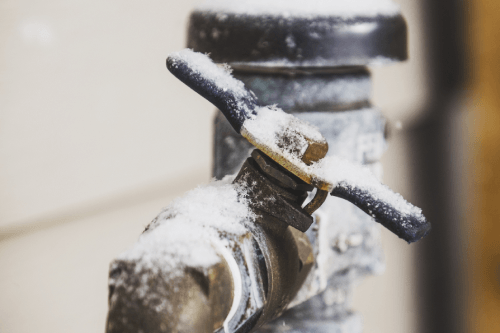Everybody seems to have their unique idea with regards to Helpful Tips to Prevent Frozen Pipes this Winter.

Cold weather can ruin your pipes, especially by freezing pipes. Here's just how to stop it from occurring and what to do if it does.
Introduction
As temperatures drop, the threat of icy pipes increases, potentially leading to pricey repair services and water damage. Understanding exactly how to prevent icy pipes is essential for home owners in chilly environments.
Understanding Icy Pipes
What creates pipes to freeze?
Pipelines freeze when exposed to temperature levels listed below 32 ° F (0 ° C) for prolonged periods. As water inside the pipelines freezes, it broadens, taxing the pipe walls and potentially creating them to burst.
Risks and problems
Icy pipelines can bring about supply of water disturbances, residential or commercial property damage, and pricey repair services. Ruptured pipelines can flooding homes and create extensive structural damages.
Indications of Frozen Pipes
Determining icy pipelines early can prevent them from breaking.
Just how to determine frozen pipelines
Try to find lowered water circulation from faucets, unusual smells or sounds from pipelines, and visible frost on subjected pipes.
Prevention Tips
Protecting vulnerable pipelines
Wrap pipes in insulation sleeves or utilize warmth tape to shield them from freezing temperature levels. Concentrate on pipes in unheated or exterior areas of the home.
Home heating methods
Maintain indoor areas sufficiently warmed, particularly locations with plumbing. Open up cabinet doors to permit warm air to distribute around pipelines under sinks.
Safeguarding Exterior Plumbing
Garden pipes and exterior faucets
Detach and drain pipes yard hoses before wintertime. Mount frost-proof faucets or cover outdoor faucets with insulated caps.
What to Do If Your Pipes Freeze
Immediate actions to take
If you suspect frozen pipes, keep taps open to ease pressure as the ice melts. Use a hairdryer or towels soaked in hot water to thaw pipes gradually.
Long-Term Solutions
Architectural changes
Think about rerouting pipelines far from outside wall surfaces or unheated areas. Add added insulation to attics, cellars, and crawl spaces.
Upgrading insulation
Invest in high-grade insulation for pipelines, attic rooms, and walls. Appropriate insulation aids maintain consistent temperature levels and lowers the risk of frozen pipes.
Final thought
Avoiding frozen pipelines needs positive actions and fast responses. By understanding the causes, signs, and safety nets, homeowners can protect their pipes throughout winter.
Helpful Tips to Prevent Frozen Pipes this Winter
UNDERSTANDING THE BASICS: WHY PIPES FREEZE AND WHY IT’S A PROBLEM
Water freezing inside pipes is common during the winter months, but understanding why pipes freeze, and the potential problems it can cause is crucial in preventing such incidents. This section will delve into the basics of why pipes freeze and the associated problems that may arise.
THE SCIENCE BEHIND FROZEN PIPES
When water reaches freezing temperatures, it undergoes a physical transformation and solidifies into ice. This expansion of water as it freezes is the primary reason pipes can burst. As the water inside the pipe freezes, it expands, creating immense pressure on the walls. If the pressure becomes too great, the pipe can crack or rupture, leading to leaks and water damage.
FACTORS THAT CONTRIBUTE TO PIPE FREEZING
Low Temperatures: Extremely cold weather, especially below freezing, increases the risk of pipes freezing. Uninsulated or Poorly Insulated Pipes: Pipes located in unheated areas, such as basements, crawl spaces, or attics, are more prone to freezing. Insufficient insulation or lack of insulation altogether exacerbates the problem. Exterior Wall Exposure: Pipes running along exterior walls are susceptible to freezing as they encounter colder temperatures outside. Lack of Heating or Temperature Regulation: Inadequate heating or inconsistent temperature control in your home can contribute to frozen pipes. PROBLEMS CAUSED BY FROZEN PIPES
- Pipe Bursting: As mentioned earlier, the expansion of water as it freezes can cause pipes to burst, resulting in significant water damage.
- Water Damage: When pipes burst, it can lead to flooding and water damage to your property, including walls, ceilings, flooring, and personal belongings.
- Structural Damage: Prolonged exposure to water from burst pipes can compromise the structural integrity of your home, leading to costly repairs.
- Mold and Mildew Growth: Excess moisture from water damage can create a favorable environment for mold and mildew growth, posing health risks to occupants.
- Disrupted Water Supply: Frozen pipes can also result in a complete or partial loss of water supply until the issue is resolved.
WHY CERTAIN PIPES ARE MORE PRONE TO FREEZING
- Location: Pipes located in unheated or poorly insulated areas, such as basements, crawl spaces, attics, or exterior walls, are at higher risk of freezing.
- Exterior Pipes: Outdoor pipes, such as those used for irrigation or exposed plumbing, are particularly vulnerable to freezing as they are directly exposed to the elements.
- Supply Lines: Pipes that carry water from the main water supply into your home, including the main water line, are critical to protect as freezing in these lines can affect your entire plumbing system.
- Underground Pipes: Pipes buried underground, such as those connected to sprinkler systems or outdoor faucets, can be susceptible to freezing if not properly insulated.
https://busybusy.com/blog/helpful-tips-to-prevent-frozen-pipes-this-winter/

Do you like reading up on How to prepare your home plumbing for winter weather? Try to leave a comment down the page. We'd be pleased to find out your suggestions about this page. We are looking forward that you visit us again soon. Are you aware of somebody else who is fascinated about the niche? Why not share it. Thank-you for your time spent reading it.
Click Here